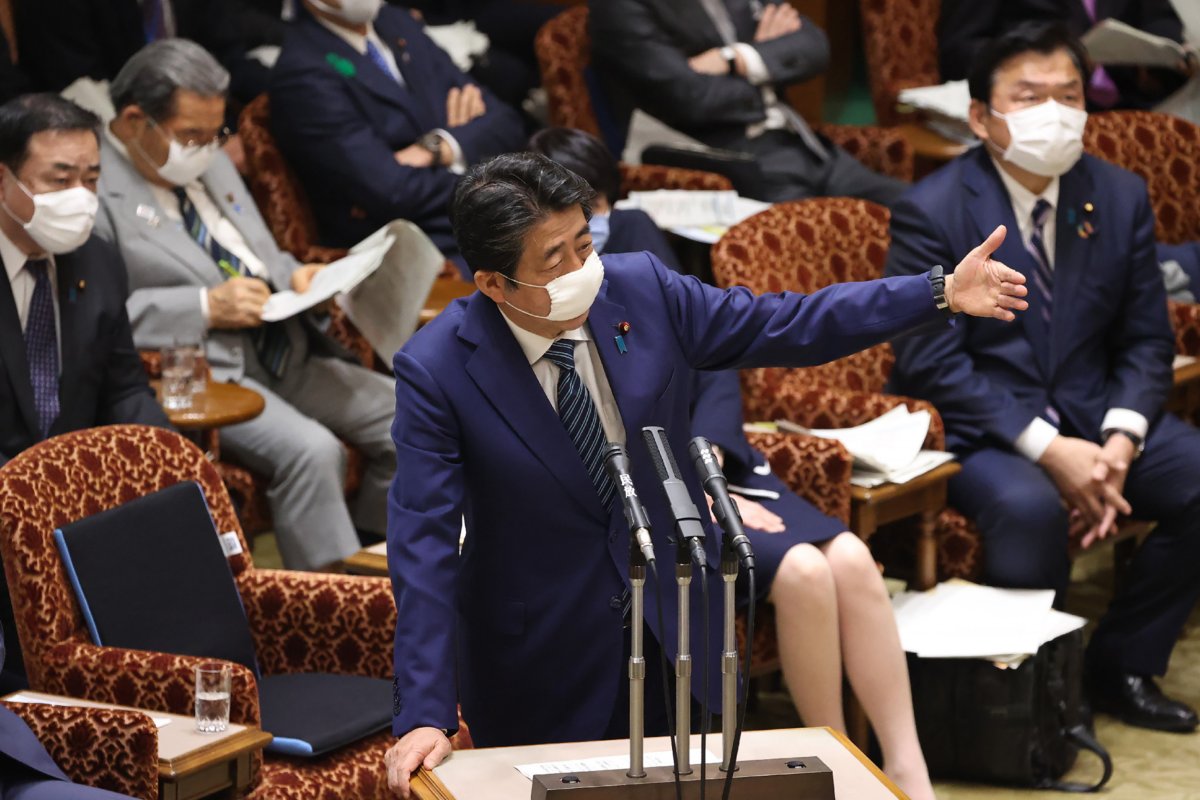Japanese Prime Minister Shinzo Abe said Wednesday it would be "impossible" for the country to hold the 2020 Tokyo Olympics, as the governor of the nation's capital called for Japan's state of emergency to be extended.
"We've been saying the Olympic and Paralympic games must be held in a complete form, in that athletes and spectators can all participate safely. It would be impossible to hold the games in such a complete form unless the coronavirus pandemic is contained," Abe told parliament members while responding to a lawmaker, according to Reuters.
On Wednesday, Tokyo Governor Yuriko Koike called containment of the virus in the capital city "difficult" and asked for the nationwide state of emergency to be extended past its May 6 expiration date.
Japan has 13,576 confirmed cases of the novel coronavirus and 376 deaths, according to the country's Ministry of Health, Labor and Welfare's website. Koike pointed out that over 100 of those deaths have occurred in Tokyo when she asked for the state of emergency extension.
Japan has yet to implement a nationwide lockdown to combat the spread of the virus. The prime minister instead decided to extend the state of emergency to the entire country on April 16 after previously implementing it only in select regions.
The Olympics were postponed in late March by the International Olympic Committee (IOC) because of the pandemic. The event is scheduled to commence on July 23 of next year. However, Abe said the games "must be held in a way that shows the world has won its battle against the coronavirus pandemic," Reuters reported.
Yoshiro Mori, president of the Tokyo 2020 Olympics organizing committee, said Tuesday that if the pandemic is still a serious problem going into next year the Olympics would be canceled rather than delayed to an even later date.
Yoshitake Yokokura, head of the Japan Medical Association, echoed Mori's sentiments on Tuesday, saying that holding the Olympics next year could be problematic, according to Reuters. "Unless an effective vaccine is developed, I expect hosting the Olympics will be difficult," Yokokura said during a press briefing.
The Olympics were originally scheduled to take place between July 24 and August 9 this year. However, in a joint statement with the Japanese government, the IOC said on March 24 the event "must be rescheduled to a date beyond 2020 but not later than summer 2021, to safeguard the health of the athletes, everybody involved in the Olympic Games and the international community."

Uncommon Knowledge
Newsweek is committed to challenging conventional wisdom and finding connections in the search for common ground.
Newsweek is committed to challenging conventional wisdom and finding connections in the search for common ground.
About the writer
To read how Newsweek uses AI as a newsroom tool, Click here.








